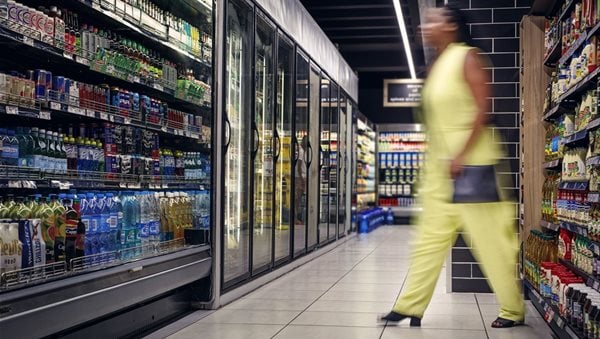
Top stories






More news


Marketing & Media
Ads are coming to AI. Does that really have to be such a bad thing?














Smollan, a commerce solutions company, recently ran an internal Trends Workshop with a diverse team from across the company to identify trends that may significantly shape the retail industry in the coming years. The company tracks emerging signals, explores the interplay between different trends and looks to develop new retail solutions that meet the needs of this changing retail landscape.
Here are six trends that have the potential to bring a step-change in the retail industry, according to Smollan:
For some time, brands have been embracing strategies that allow them to engage directly with and sell to consumers. This enables them to control the overall customer experience and collect consumer data along the purchase journey, helping them to improve their offering and build a stronger brand identity.
In 2020, lockdowns globally drove an unprecedented adoption of e-commerce and although direct to consumer saw substantial growth, it grew at a slower rate than traditional e-commerce where a rapid increase in the sale of essential goods was a major contributor. This suggests an opportunity for consumer-packaged goods companies with relevant baskets to amplify their current direct sales which may be under-indexed.
Whirlpool Labs Innovation launched an online e-commerce store for customers to directly buy cleaning accessories, while PepsiCo consumers can now shop on their PantryShop.com and Snack.com, bypassing the supermarket.
The pandemic fast-tracked a monumental shift to remote work. Now, less rigid arrangements have become the norm such as flexible work schedules, unlimited leave or a combination of these elements. Co-designing the post-pandemic work environment with one’s employees is critical.
Buffer introduced a long-term pilot of a four-day workweek in 2020 which has resulted in “sustained productivity levels and a better sense of work-life balance.” Last month, Apple employees pushed back against a new policy that would require them to return to the office three days a week, while Ford has offered its 30,000 staff complement the choice to work from home even after the pandemic.
Alliances between two or more brands or organisations, serve to create a unique and novel product or service with the intention of gaining a competitive advantage in the market. Companies with compatible values come together leveraging one another’s assets or audiences to accomplish a common goal.
L’Oreal partnered with TikTok to bring shopping directly into the app experience, resulting in a frictionless content-to-commerce shopping experience. In another outstanding collaboration, Lego partnered with Adidas to reimagine an iconic silhouette – The Adidas Originals Superstar – offering consumers sneakers to wear and to build.
Consumption is not dead but it’s changing with new generations buying with less frequency and more mindfully as they become conscious consumers. They 'vote' with their wallets, supporting plastic-free and cruelty-free products and shorter routes-to-market. For example, Unilever scientists have found a new recyclable material for their toothpaste tubes, making the solution available to other companies to encourage an industry-wide change.
Mr Green Africa uses technology to collect and process recyclable materials with a traceable social and environmental impact while Swedish brand Felix offers items that are priced according to their carbon footprint.
Consumers are embracing preventative care, self-monitoring and holistic wellness to keep their bodies in check, experimenting with ways to improve their personal consumption and lifestyle habits including those related to sleep, food, exercise and mood management. Preventative care also offers the potential to mitigate rising healthcare costs in the long run.
Bos launched a range of functional rooibos-based health shots packed with the benefits of their organic tea. Fitbit’s Versa 2 wakes users up in the morning at an optimal time, tracks sleep patterns and provides insights, while insurance company Vibra Health sends free fruit and veggie boxes to members in partnership with FarmboxRX.
Due to the exponential growth of e-commerce and demand for speedy convenient deliveries, there is a need to make the last stage of a product’s journey as efficient as possible while providing satisfying customer service.
As a result, warehousing, distribution and delivery models are transforming to streamline operations, embracing automation technologies and novel delivery methods. Russia’s Google delivers online orders in just 15 minutes, Walmart invested in DroneUp, an on-demand drone delivery provider, and Amazon Scout uses a fully electric system to deliver packages to customers using autonomous devices.
"While the above trends and examples are a tiny snapshot of the monumental transformation happening around us, they signal how these changes are starting to take shape. These and other organisations that empathetically and deliberately turn opportunities into new solutions; that proactively build the world of tomorrow; that deliver value through collaborative networks and are purposeful around planet, people, and community – will reshape the post-virus world," Smollan said.